Incentive Compensation Management 101: A Complete Guide
.avif)
Incentive compensation refers to sales commissions, bonuses, SPIFs, and other monetary compensation given to employees whose performance directly affects company revenue, such as sales teams.
Why do we need incentive compensation? Well, the simple answer is to push such employees to generate more and more revenue, seeing as the better they perform, the more they earn. Base salary = base performance, so revenue-generating employees need more.
Key Takeaways:
- Incentive compensation motivates sales teams to exceed targets by aligning pay with performance.
- Manual incentive management is error-prone, inefficient, and hard to scale.
- Automated ICM solutions like Visdum streamline plan design, calculation, and payout.
- ICM improves visibility, speed, compliance, and decision-making through automation.
- An optimized plan should reflect company strategy, market trends, and rep motivation.
This is what incentive compensation management aims to solve- It seeks to automate the creation, optimization, management, and oversight of incentive plans to make them more effective as a strategic tool. Efficient incentive compensation management aligns broader business goals with the personal motivation of sales reps.
By the end of this guide, you will clearly know the definition, use case, challenges, and benefits incentive compensation management- and will have enough to form buying intent for an incentive compensation management solution.
So, let's jump straight into it.
What does Incentive Compensation Management Mean?
Incentive compensation management (ICM) refers to the process of creating, optimizing, and overseeing the implementation of performance-based sales incentives and ensuring the smooth disbursal of said incentives when employees (sales reps) achieve their targets. The goal of ICM is to extract maximum value from sales incentives , make the process more efficient, and align broader organizational goals with the sales reps' personal motivations.
Incentive compensation includes commissions, bonuses, SPIFFs, and other pay linked to performance. It rewards employees—especially sales reps—based on how well they help the company grow revenue.
ICM is the process of designing, managing, and optimizing these incentives. It includes:
- Setting performance-based goals
- Designing payout structures
- Calculating and distributing payouts
- Communicating the plan to reps
- Analyzing outcomes and optimizing over time
Automated ICM tools simplify data collection, calculation, and compliance, offering real-time visibility and eliminating manual errors.
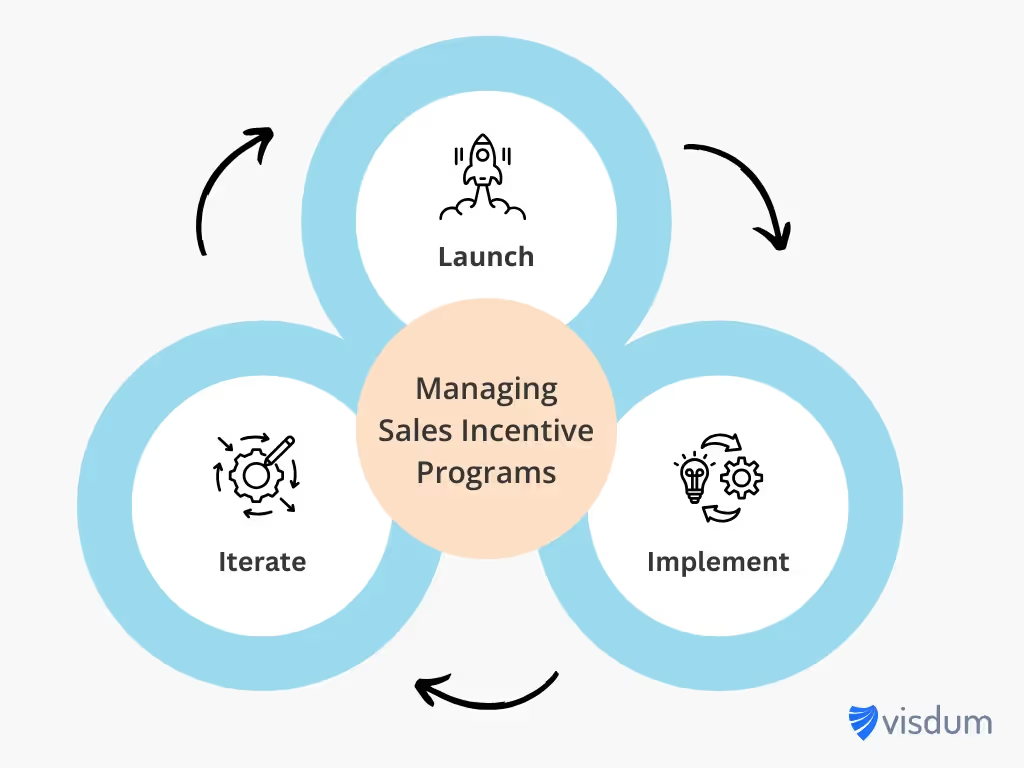
Why Does Incentive Compensation Matter?
- Aligns individual goals with company strategy
- Drives higher performance by linking rewards to outcomes
- Improves retention and motivation in revenue-generating roles
- Provides transparency and fairness in compensation
Manual management of these plans, especially with 100+ reps across regions and plans is complex and error-prone. ICM software makes it scalable and strategic.
TL;DR #1: Incentive compensation is critical for aligning revenue goals with employee motivation, but manual management creates inefficiencies. Automation solves this.
Step-By-Step Guide to How Incentive Compensation Management Works
Incentive compensation management is all about efficiency in sales compensation. In 2025, incentive compensation management software is definitely the move to make if you want to streamline sales comp and run a successful incentive compensation program.
However, before jumping into automation and other niceties of technology, let's first understand how a basic incentive compensation framework works.
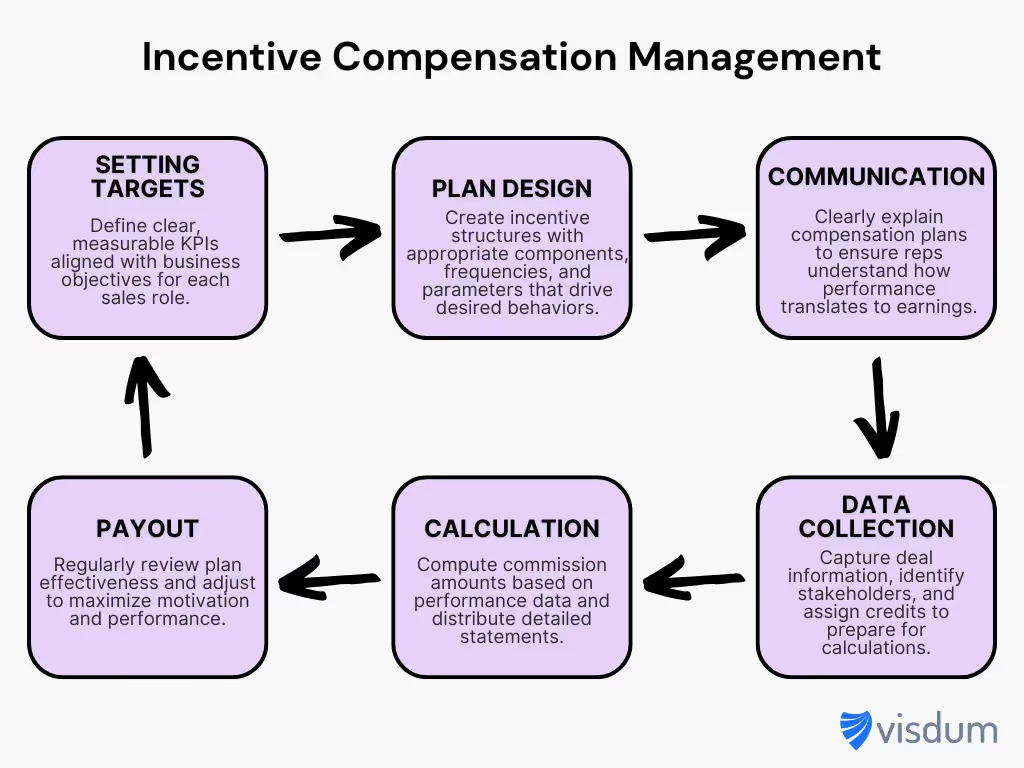
1. Set Performance Targets
Tie incentives directly to business goals:
- Launching a product? Reward adoption.
- Expanding markets? Focus on penetration metrics.
- Want longer contracts? Incentivize multi-year deals.
Each sales role should have clear, measurable KPIs e.g., quota, CSAT, or renewal rates.
2. Design the Plan
Structure the incentive program:
- Choose components: SPIFFs, bonuses, commission tiers
- Define payout cycles (monthly, quarterly)
- Set caps/gates to control spend
- Include team-level incentives if applicable
Collaborate with sales leadership to ensure practicality.
3. Communicate Clearly
Reps must know exactly how their performance translates to earnings. Cover:
- Commission structure
- Accelerators and clawbacks
- Payout timelines
ICM software helps reps view their plan and real-time earnings anytime.
Also Read: 8 Proven Incentive Compensation Strategies for 2025
4. Collect and Track Data
Manual entry causes delays and errors. With ICM tools:
- Data flows from CRM, HRIS, invoicing systems
- Deal credits and split logic are auto-assigned
- Everything stays current and audit-ready
5. Calculate and Pay Out
Manual methods: complex formulas + copy-paste chaos
ICM tools:
- Compute payouts for the entire team instantly
- Auto-generate detailed commission statements
- Ensure fair and timely disbursal
6. Analyze and Optimize
Regularly assess plan effectiveness:
- Do reps respond better to bonuses or SPIFFs?
- Are sales aligned with target product priorities?
- Are you competitive in your market?
Use ICM analytics to guide changes.
How to Design a Working ICM Plan
Organizational Alignment
Tie incentives to company priorities:
- Push high-value products with higher commission
- Use SPIFFs for time-sensitive initiatives
- Promote cash flow via upfront-payment rewards
Rep Involvement
Get input from sales managers and reps:
- Understand challenges in the field
- Gauge fairness and feasibility
Complexity vs. Clarity
Complexity is fine if it's transparent. Avoid hidden rules. Provide reps a clear breakdown of earnings drivers.
Market Fit
Stay competitive:
- Benchmark against industry standards
- Adapt to rep expectations
- Update regularly and communicate changes
Key Components of an Incentive Plan
- Sales Commission: Main driver; percentage of closed deal
- SPIFFs: Promote specific short-term goals (e.g., new product sales)
- Bonuses: Periodic rewards based on milestones
- Team Incentives: Drive collaboration and shared goals
- Spot Rewards: On-the-spot recognition for standout achievements
Must Read: Crafting a Winning Incentive Compensation Plan in 2026
TL;DR #2: Incentive Compensation Management (ICM) software enables fast, accurate, and scalable comp plan execution by integrating with CRM, HR, and invoicing tools.
Challenges Involved in Incentive Compensation Management
Manual incentive compensation is a nightmare for finance teams and sales reps both. Some of the main challenges are:
- No visibility: Management of incentives on spreadsheets means sales reps have no way of knowing how their day-to-day operations are affecting their paychecks. This creates a gap between motivation and action, reducing the effect of incentives. On the other hand, the sales leaders also have no idea what the performance of the incentive plan is in real time.
- Lack of flexibility: Spreadsheets make it impossible to quickly edit plans and adapt to trends since it is a complex task to edit so many sheets with accuracy and in time. In sales teams with a relatively large number of reps, It is impossible to implement quick changes.
- Time-consuming manual calculation: Finance teams have to sit down to calculate each sales rep's paycheck individually while ensuring that the formulas on Excel and the data they pull from the CRM are correctly pasted. This often results in delayed payments, errors, and a system of interconnected spreadsheets that can break with a simple mistake.
- No performance tracking options: Incentive compensation management is a core part of sales performance management, but if done manually, it offers no options to track the effect of incentives until after the sales period is already over. Automated solutions offer real-time tracking and help in data-driven decision-making.
- Lack of integration with other systems: Manual methods do not sync data with your CRM or other platforms. They are entirely reliant on data being copied and pasted into the right place with the right formulas (which is a disaster waiting to happen at any moment). This also means difficulty in generating payslips and maintaining HR and tax compliance.
- Audit complexity: Tracking all your numbers is hard enough without 50 spreadsheets that show incentive reality. Maintaining audit trails and proper documentation is incredibly tough in manual systems as all edits and inputs have to be manually recorded and vetted later on.
- Lack of scalability: With increases in team size and compensation plan complexity and detail, manual systems simply fail to maintain the minimum standards of accuracy and speed to be a viable option. Plus, at those scales, visibility and data management become incredibly important.4
- No reporting capabilities: Accurate commission statements? Performance reports? Dashboards? If you want these, you have no option but to go towards ICM software. Spreadsheets just can't cut it in terms of reporting and having glanceable data with any real insights.
Suggested Reading: 2025 Incentive Compensation Trends
Automated Incentive Compensation Management: What It Means For Your Business
With incentive compensation management software like Visdum, you can essentially overcome all of the above-mentioned challenges while saving time and effort. Here's what automation will look like for you:
- Real-time visibility: ICM software visualizes compensation data and effectiveness to allow leaders to see in real-time how well an incentive plan is working. With dashboards, reports, and drill-to-detail features, every deal can be analyzed in terms of what compensation was tied to it. The reps also get a clear real-time view of their earnings. Who wouldn't wanna see their progress bar going up?
- Automated report generation: Commission statements, performance reports, analytics- you name it- ICM Software allows finance teams to streamline data management and derive key insights from compensation. This makes data-driven decisions possible and overall reduces a huge burden from the finance and revenue teams.
- Compliance and security: Spreadsheets are really easy to mess up- Really. Sales commission software like Visdum adheres to strict security accounting standards (Like ASC 606) to ensure complete compliance regulation. You can rest assured that your data is correctly maintained- and also that it's not going anywhere it is not supposed to.
- Accuracy and speed: Perhaps the biggest and simplest benefit- ICM software is much more accurate and fast- single click calculation for the entire team, storage of comp plans for future use, recomputations, clawbacks, etc. can easily be performed in a few clicks without any hassle.
- Scalability and efficiency: Growing sales teams, frequent plan edits, and changing industry trends? ICM solutions support this growth and allow for flexibility like never before. With simple rule builders, plan editors, and data integrations, you can rest assured that there is no bottleneck in your sales comp.
- Integrations:Modern Incentive Compensation Management solutions integrate with data sources to automatically pull in deal data, HR information, and other data required to compute incentives- making data management much easier and keeping everything up-to-date. It's like all your different tools are talking and helping each other.
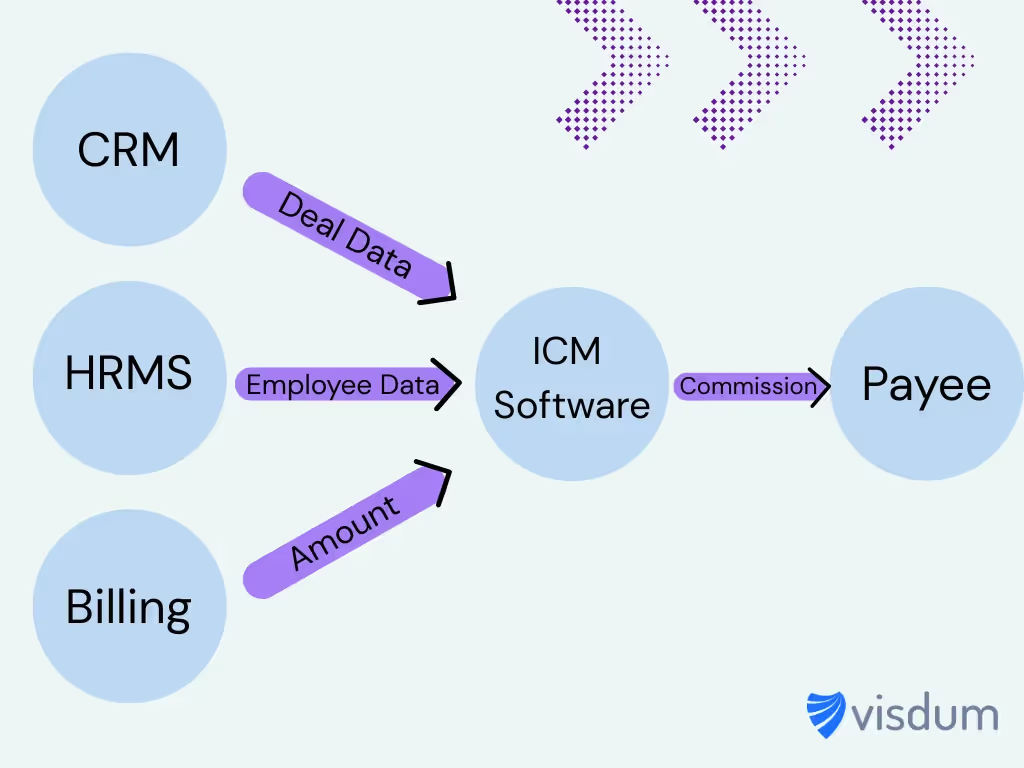
TL;DR #3: A strong ICM system increases visibility, streamlines payouts, ensures audit readiness, and helps optimize plans for better performance.
Relationship Between Sales Performance Management and Incentive Compensation Management
Incentive Compensation Management is a key part of SPM. It not only ensures payouts but also:
- Motivates desired behaviors
- Improves sales outcomes
- Aligns actions with strategy
SPM includes:
- Territory planning
- Performance analysis
- Goal setting
- Incentive management
- Sales coaching
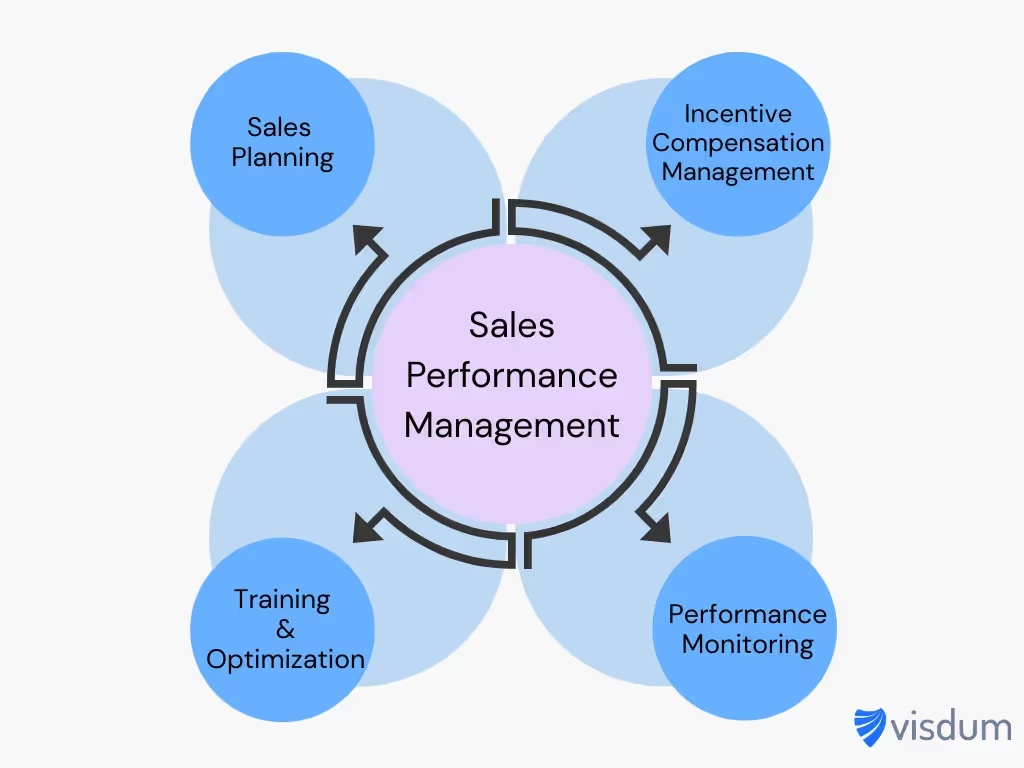
Incentive Compensation Management is a key part of SPM. It not only ensures payouts but also:
- Motivates desired behaviors
- Improves sales outcomes
- Aligns actions with strategy
SPM includes:
- Territory planning
- Performance analysis
- Goal setting
- Incentive management
- Sales coaching
FAQs
What is the role of an incentive compensation manager?
An incentive compensation manager handles the design, implementation, and performance of incentive plans. Their duty is to regularly test and optimize compensation plans to ensure optimal performance. They have to predictively analyze comp plan performance and make changes to steer performance in the direction of goals.
What does incentive compensation mean?
Incentive compensation refers to the 'extra' compensation provided on top of base salary to motivate higher levels of performance and meeting specific goals (such as sales targets). Incentive compensation includes bonuses, commissions, and other components in addition to the base salary.
What is incentive management?
Incentive management is the process of analyzing and optimizing commission plans to ensure the best performance while ensuring that the plans direct maximum motivation towards the accomplishment of business objectives, for example, maximizing revenue.
What is an example of incentive-based compensation?
A direct example of incentive compensation is the sales commission received by a sales rep upon closing a deal. For example, If a sales rep closes a $10,000 deal, and his commission rate is 4%, then they receive an additional $400 on top of their base salary. Sales commissions motivate sales reps to close more and more deals to maximize company revenue.
What is the purpose of incentive compensation management?
The purpose of incentive compensation management is to streamline the implementation of incentives and to increase their productivity for the business. The ICM function analyzes the effectiveness of incentive plans after creating and implementing them to ensure that they are contributing to sales rep motivation in the desired way; if not, the plans are revamped.
Is incentive pay good or bad?
Most companies follow a 'base pay + incentive' structure, which ensures financial stability and the potential to earn more based on performance. An incentive pay-only structure creates risk and financial volatility in the lives of the sales reps, so it might not be suitable. Incentive pay in itself is an amazing tool to push performance beyond normal levels.
What is the most basic form of incentive compensation?
The most basic form of incentive compensation is sales commissions, which are essentially a cut of the revenue given to the salesperson as a form of payment when they close a deal. They are given to push sales reps to close more deals and hence, drive better results for the business.
What is an incentive pay structure?
An incentive pay structure outlines all the different components of an employee's total compensation. For example, A sales rep can have a base salary, stock options, sales commission, quarterly bonus, and annual bonus in his incentive pay structure. An incentive pay structure is the holy bible for employees for the amount of money they are going to make, so to say.
Is incentive pay taxable?
Yes, bonuses, commissions, and other incentives are considered 'supplemental wages' by the IRS and are taxed normally just as the base salary.

.webp)
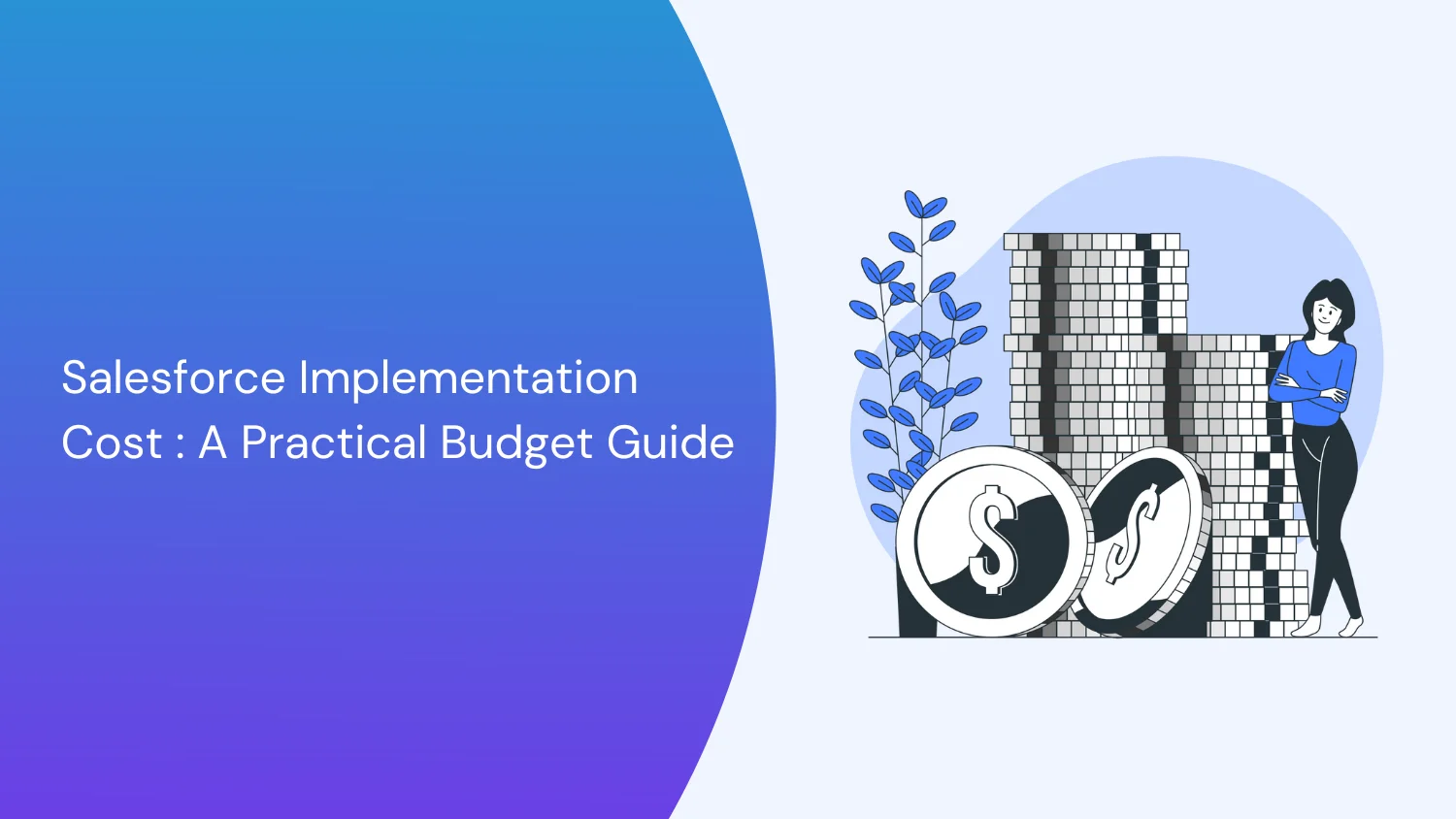
.webp)

